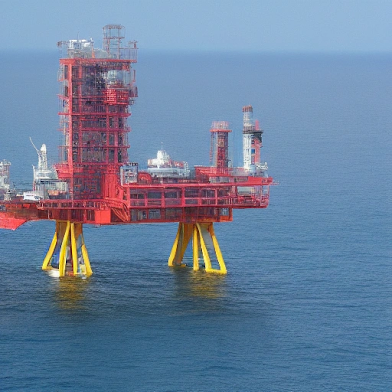Errebexis Petroleum
 |
| Petroalbex |
An offshore petroleum platform is a critical component of the oil and gas industry. These platforms are designed to extract and process hydrocarbons from the ocean floor, and they play a vital role in meeting the world's energy demands. In this article, we'll take a closer look at the key functionalities of an offshore petroleum platform and how they contribute to the overall production and processing of oil and gas.
Drilling and Extraction: One of the primary functions of an offshore petroleum platform is drilling for oil and gas. The platform is equipped with drilling equipment, including drills, derricks, and cranes, that are used to bore into the ocean floor and extract hydrocarbons. The drilling equipment is able to reach depths of several thousand feet, and it is capable of extracting a large volume of oil and gas from a single well.
Processing: Once the oil and gas are extracted, they are processed on the platform. This involves separating the oil and gas into their respective components and purifying them to remove any impurities. The processed oil and gas are then stored on the platform until they can be transported to shore.
Transportation: An offshore petroleum platform is equipped with a system for transporting oil and gas to shore. This can include pipelines, tankers, or a combination of both. The transportation system is designed to be efficient, safe, and reliable, so that the extracted hydrocarbons can be delivered to shore without interruption.
Environmental Monitoring: Offshore petroleum platforms are required to monitor their impact on the environment. This includes monitoring the quality of the water and air in the surrounding area, as well as the behavior of marine life. The platform is equipped with sensors and monitoring equipment that allow it to assess its impact on the environment and make adjustments as needed to minimize any negative effects.
Maintenance and Repair: Regular maintenance and repair are necessary to keep an offshore petroleum platform operating efficiently. This can include routine inspections, the replacement of worn or damaged equipment, and the implementation of upgrades and improvements. The platform is equipped with the necessary tools and personnel to perform these tasks, so that production can continue without interruption.
In conclusion, an offshore petroleum platform is a complex and sophisticated system that plays a critical role in the extraction and processing of oil and gas. Its various functionalities, from drilling and extraction to environmental monitoring and maintenance, work together to ensure that hydrocarbons are produced and processed efficiently and safely. The importance of these platforms to the energy industry cannot be overstated, and they will continue to play a vital role in meeting the world's energy needs for many years to come.

Comentários
Postar um comentário